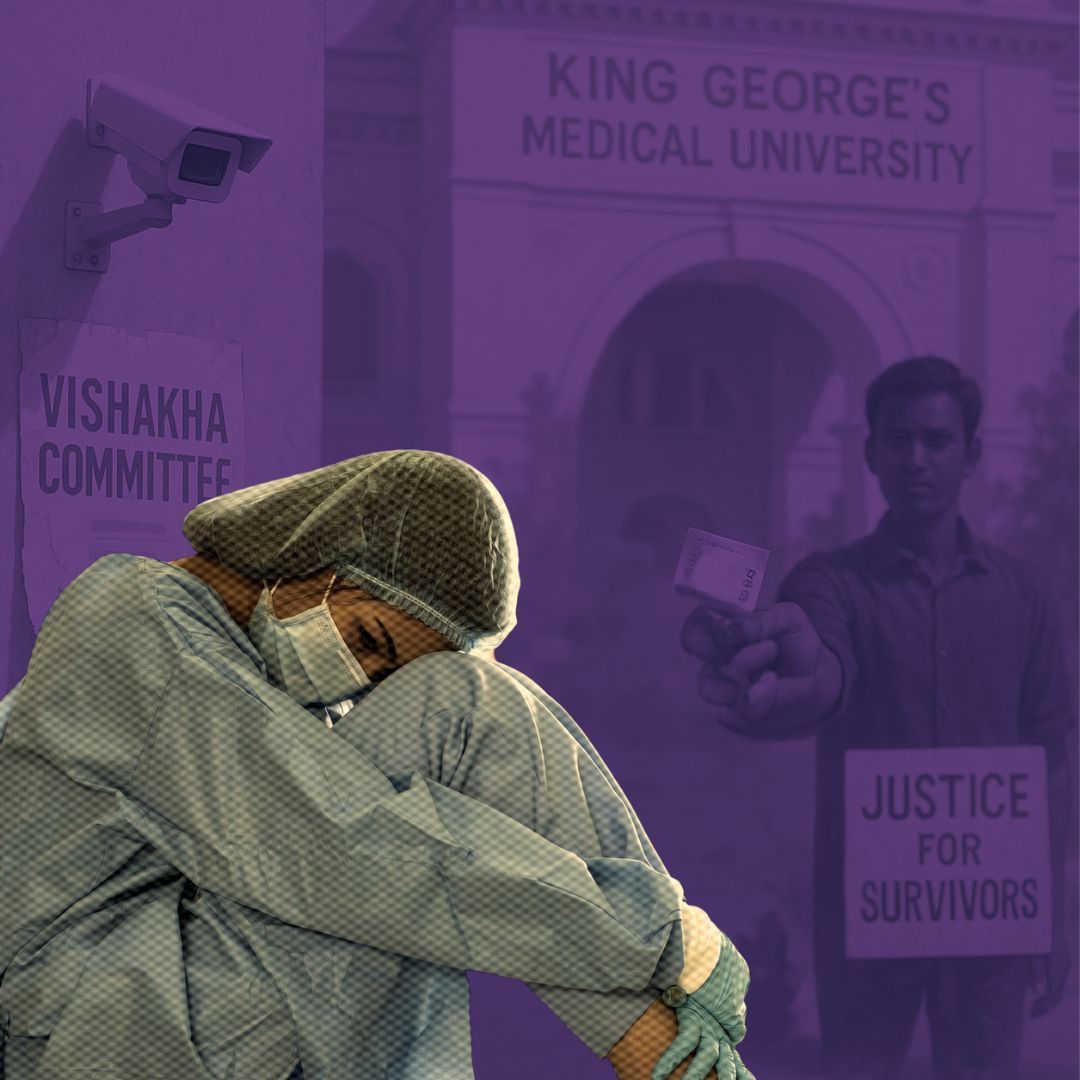A Lucknow woman has alleged that Akash Shukla and his family allegedly sexually exploited her under the pretext of securing a nursing job at King George’s Medical University (KGMU), extorting ₹2 lakh over several months.
Police registered a case under relevant IPC sections, with DCP (West) Vishwajeet Srivastava confirming an active investigation. The survivor has demanded a DNA test to substantiate her allegations, while KGMU’s recent initiatives to support women’s welfare, such as breastfeeding pods, contrast with its unresolved safety challenges.
Allegations of Systemic Exploitation
The survivor, whose identity remains protected, has claimed that Shukla allegedly manipulated her with promises of employment at KGMU and marriage, later demanding ₹2 lakh as “processing fees.” After months of alleged sexual exploitation, she approached authorities when Shukla allegedly reneged on both commitments.
The police complaint highlights alleged coercive tactics, including threats to leak personal information. While Shukla’s family denies the charges, the demand for a DNA test introduces forensic stakes to the case.
DCP Srivastava stated, “We are investigating all angles, including alleged financial fraud and sexual exploitation. The survivor’s safety remains a priority.” However, no arrests have been made yet, reflecting procedural delays common in such cases.
KGMU’s Dual Reality: Progress and Persistent Risks
KGMU, a premier medical institution, recently installed breastfeeding pods to support lactating mothers, part of its 2024 maternal health initiatives. However, this contrasts starkly with recurring safety lapses:
- July 2024: Students protested after a canteen worker was arrested for allegedly molesting an MBBS student.
- March 2024: An assistant nursing officer faced pay sanctions for allegedly harassing a colleague, following Vishakha Committee recommendations.
- 2019: Resident doctors clashed with administrators over inadequate security after a staffer’s harassment complaint was dismissed.
The university’s Vishakha Committee, tasked with addressing harassment, has mandated gender sensitisation workshops and increased CCTV surveillance. Yet, survivors often cite bureaucratic delays in justice, as seen in the current case.
Broader Institutional Challenges
KGMU’s environment reflects systemic issues in Indian healthcare institutions:
- 2023: A former neurosurgeon was allegedly assaulted by a mob of 40 in a separate case, exposing security gaps.
- Staffing Shortages: Overburdened staff and contractual hiring practices create power imbalances allegedly exploitable by predators.
- Cultural Stigma: Fear of reputational harm discourages survivors from reporting, a pattern evident in the latest allegations.
Experts argue that while policies like the POSH Act exist, implementation remains inconsistent. “Institutions must adopt survivor-centric protocols, including psychological support and fast-tracked investigations,” says Lucknow-based women’s rights advocate Akanksha Patel.
The Logical Indian’s Perspective
KGMU’s breastfeeding pods symbolise progress, but the unresolved exploitation case reveals a fractured system. True empowerment requires institutions to confront patriarchal power structures and prioritise survivor autonomy over institutional reputation.













